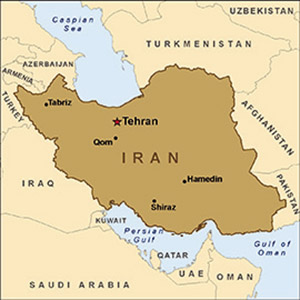
It was not so long ago that Federal District Court Judge Daniels ruled Iran, including the Ayatollah Khomeini, was responsible for the 9/11 attacks on the U.S.
The historic ruling was entered, on December 22, 2011, in the Havlish case, brought by family members and legal representatives of victims of 9/11. The judge also issued 53 pages of detailed Findings of Facts and Conclusions of Law that describe the role Iran and its various governmental organs played in this horrible attack on the homeland.
Among other things, the court found:
1. Iran has been waging war against the United States and Israel for over 30 years.
2. The Ayatollah Khomeini holds the power to dismiss the president, overrule the parliament and courts and overturn any secular law.
3. The religious division between Sunni and Shi’a did not, in fact, pose an insurmountable barrier to cooperation on terrorist operations. An alliance was formed between Shi’a Iran and Sunni al Qaeda, to conduct terrorist attacks against the United States, including 9/11.
4. Iran was behind the Khobar Towers bombing.
5. Iran was behind the attack on the U.S. Embassies in Nairobi, Kenya and Dar-es-Salaam, Tanzania.
6. Iran devised plans aimed at breaking the backbone of the American economy, crippling or disheartening the United States and its people and disrupting its economic, social, military and political order. Among the schemes devised was a plan to crash Boeing jumbo jets, with large full capacities, into the World Trade Center, White House and Pentagon. The code name for these plans was “Shaitan dar Atash” (loosely translated as Satan in Flames).
7. Iran was behind the attack on 9/11.
Can an agreement based on false assumptions, including as to the intent of the parties, be effective? In evaluating the merits of an agreement, it is important to know the truth. Ignorance can’t shield us from the harm that might ensue from being misled by a disingenuous agreement. Hope and spin are no substitute for putting in place genuine safeguards to prevent an enemy from attacking us.
In this regard, it is critical to recognize that Iran is at war with the United States. Nothing in the purported agreement changes this. Lest there be any misunderstanding, the Ayatollah continues to make this clear on a regular basis. The 9/11 attacks were reportedly accomplished for a cost of less than $500,000. The result was almost 3,000 innocent victims killed, many more injured and more than $3 trillion dollars in damage. Do we really want to test how much harm Iran can do with more than $100 billion?
It’s not just about the nuclear threat. The court found that Iran has many plans for attacking the U.S., including:
a. Using chemical weapons and radioactive dirty bombs;
b. Bombing hundreds of electrical power plants, gas stations and oil tankers;
c. Using passenger airliners as bombs against U.S. cities; and
d. Bombing the railroads.
Isaiah (Chapter 28, Verse 15) offers some insights into the ineffectiveness of disingenuous agreements. He cautions the scorners and spin-doctors. An agreement purporting to establish limits, like red lines not to be crossed or to cheat death, can’t be sustained. Mere words can’t provide shelter and refuge in the face of an enemy intent on war. It’s nothing more than a false hope.
Let’s take the lessons of Isaiah to heart. The promise of safety for the homeland, because of some contrived and hopeful strategy to limit Iran from completing a nuclear bomb, for a short period of 10-15 years, is not genuine. It is based on a false premise. We are, as 9/11 demonstrated, vulnerable to terrorist attacks by non-nuclear means. A reinvigorated Iran, armed with 100s of billions of dollars, as a result of sanctions relief and renewed access to world markets, is still every bit as vicious and heartless an enemy of this country. We’re, in effect, arming our avowed and implacable foe instead of disarming it. An agreement based on false premises is really not an agreement at all. Let’s expose the falsehood and urge our elected representatives in Congress to vote down this misguided agreement.
Leonard Grunstein has successfully represented a number of prominent clients over the years, including, a number of banks and other institutional lenders. He also founded a federal savings bank and then a national bank, where he served as chairman for a number of years. He was also the Chairman of Israel Discount Bank of New York.
Mr. Grunstein has published a number of significant articles in The Banking Law Journal, The Real Estate Finance Journal, the Small Business Journal and the New York Law Journal, as well as op-eds on various topics in Crain’s and other fine publications.
By Leonard Grunstein










